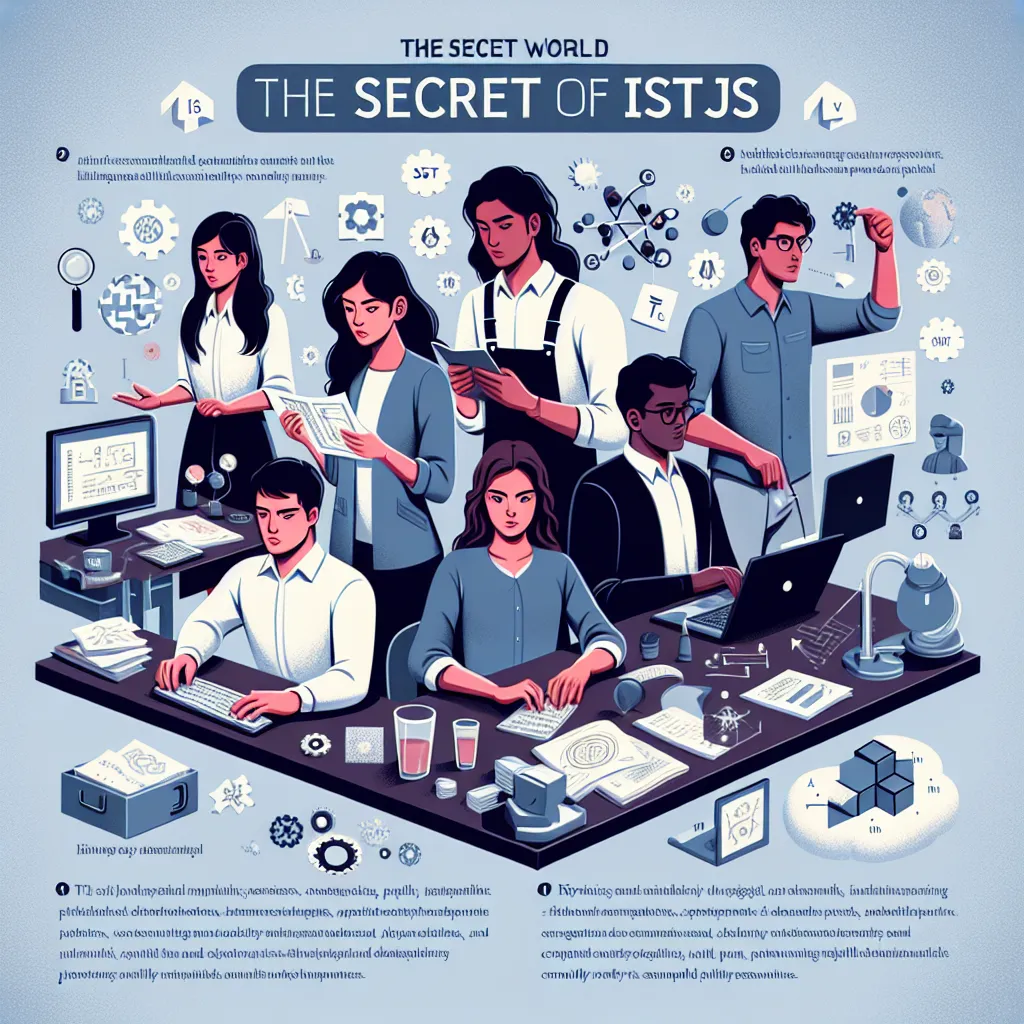The Secret World of ISTJs: Analyzing Logic-Driven Personalities
The ISTJ personality type, one of the 16 Myers-Briggs Type Indicator (MBTI) personality profiles, is often characterized by its dedication to logic, structure, and practicality. Individuals with an ISTJ personality, also known as the “Logistician,” are thought to be dependable, direct, and sincere, wielding an immense sense of duty that underpins their approach to life and relationships. This article delves into the intricacies and nuances of ISTJ personalities, exploring what sets them apart and how their logic-driven mindset impacts both their inner and outer worlds.
Understanding the ISTJ Personality
ISTJs are well-known for their methodical and reserved nature, thriving on organization and consistency. They tend to prefer environments where they can rely on a set of established rules and procedures. This has to do with their dominant cognitive function, Introverted Sensing (Si), which fosters a strong attachment to tradition and a deep respect for facts and experience. Their auxiliary function, Extraverted Thinking (Te), makes them highly effective at organizing their environment, executing tasks with precision and objectivity.
The value ISTJs place on hard facts and figures cannot be understated. Their decision-making process is informed by empirical evidence and practical application rather than conjecture or abstract theorizing. This propensity towards empiricism makes ISTJs particularly adept at roles that require meticulous attention to detail, such as in fields like finance, analytics, engineering, and law enforcement.
Internal Mechanisms of ISTJs
At the core of the ISTJ lies a deep-seated devotion to personal responsibility. As natural planners, they invest considerable time and effort into ensuring that things go according to plan, often foreseeing and accounting for potential obstacles long before they arise. However, this intense focus on preparedness and structure can sometimes lead to an aversion to change, as ISTJs value predictability and stability above all else.
The intrinsic need for order is supplemented by their Si-Te combination, which fosters a proficiency in creating and maintaining systems that withstand the test of time. ISTJs meticulously record past experiences, utilizing them as references for future decision-making. As a result, they possess procedural memory that often surpasses that of other personality types, and can recall details and facts with remarkable accuracy.
Relating to Others
ISTJs may appear reserved or aloof in social settings, but this should not be misconstrued as standoffishness. Rather, ISTJs tend to engage with social situations from a place of observation first, waiting to contribute until they are sure their input is sound and valuable. Their honesty and directness can sometimes catch others off guard, but their intentions are rooted in a desire for clarity and efficiency.
In relationships, whether personal or professional, ISTJs are steadfast and loyal. They honor their commitments and expect the same level of reliability and integrity from others. This makes them excellent partners and team members who can be depended upon to follow through on their promises. However, they may find it challenging to navigate emotionally charged environments, as they typically prioritize logic over feelings. Over time, ISTJs may learn the importance of balancing their pragmatic approach with emotional sensitivity, fostering deeper connections with those around them.
Workplace Habits and Preferences
In the workplace, ISTJs shine as dependable and detail-oriented individuals. They view their careers as a series of tasks to be completed efficiently and accurately, and they naturally gravitate towards roles that allow them to apply their skills in a structured environment. Their propensity for creating and upholding systems makes them invaluable members of any organization that values order and tradition.
ISTJs may not typically seek out leadership positions, but when they do assume such roles, they lead by example, displaying a strong work ethic and a dedication to the organization’s core values. They may also be inclined to implement proven methodologies over novel approaches unless there’s substantial evidence suggesting a need for change.
Challenges Faced by ISTJs
Despite their many strengths, ISTJs face several challenges, primarily stemming from their preference for stability and predictability. Their reluctance to step outside their comfort zones can result in missed opportunities and stifled personal growth. In addition, their inclination toward introversion can sometimes isolate them from social interactions and networking opportunities that could benefit their personal and professional lives.
Another area where ISTJs may struggle is in dealing with ambiguity and uncertainty. Their need for tangible evidence can make it difficult for them to operate in situations that require a degree of improvisation or abstract thinking. Moreover, their straightforward communication style, while typically appreciated, can occasionally be perceived as insensitive or overly critical, especially when dealing with more sensitive personality types.
Embracing Growth and Flexibility
To achieve balance and a sense of fulfillment, ISTJs can benefit from embracing change and the unknown. This may involve stepping out of their comfort zones, trying new experiences, and being open to alternative perspectives. Developing a willingness to consider non-traditional approaches and engaging more deeply with their emotional intelligence can also lead to richer interpersonal relationships and a more well-rounded view of the world.
Furthermore, learning to appreciate the value of diverse thought processes and working styles can enable ISTJs to bring out the best in others, maximizing their leadership potential. Recognizing that different situations call for different approaches can help ISTJs leverage their strengths in fresh, innovative ways.
Conclusion
The secret world of ISTJs is one governed by logic, tradition, and responsibility. Logic-driven personalities like ISTJs bring structure and dependability to every aspect of their lives. By understanding the complexities of the ISTJ personality, we can better appreciate the significant contributions they make to society and the workplace. While they might face particular challenges due to their affinity for predictability and empirical data, ISTJs possess an incredible potential to evolve and adapt. In doing so, they continue to be invaluable assets to their communities and exemplify the timeless virtue of steadfast commitment in an ever-changing world.



Leave a Comment